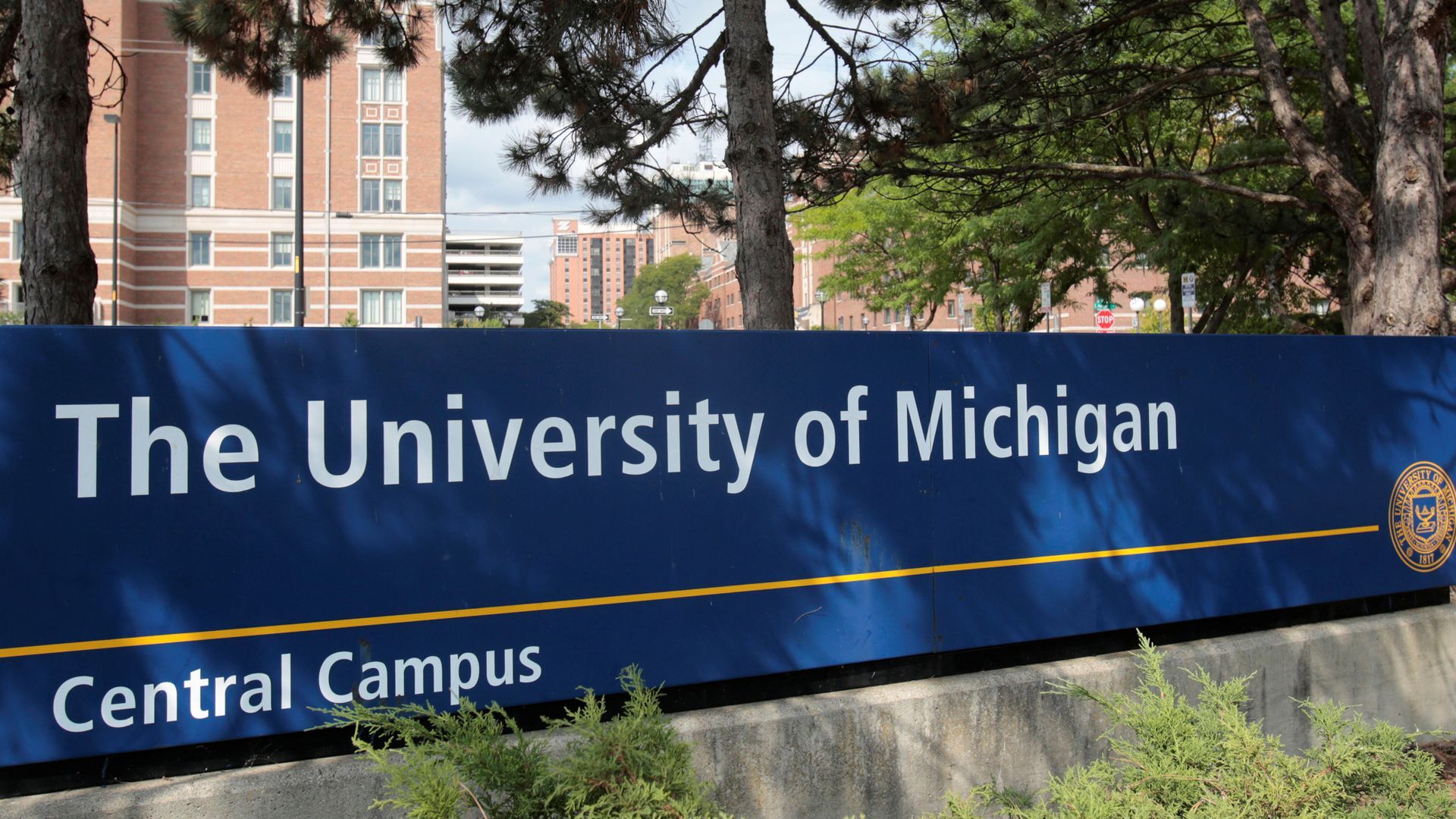
‘Cancel culture is dead’: Univ. of Mich. declares new free speech protections
Media Landscape
See how news outlets across the political spectrum are covering this story. Learn more[LAUREN TAYLOR]
ON COLLEGE CAMPUSES AROUND THE COUNTRY, PROTESTORS HAVE been successful in stopping CONTROVERSIAL SPEAKERS FROM VOICING THEIR THOUGHTS AND VIEWPOINTS.
YOU MIGHT REMEMBER IN APRIL OF LAST YEAR – protestors at San Francisco State University SHUT down a SPEAKING EVENT FOR RILEY GAINES, A former NCAA swimmer WHO SPEAKS OUT AGAINST BOYS PLAYING ON GIRLS SPORTS TEAMS.
THE UNIVERSITY OF MICHIGAN’S BOARD OF REGENTS JUST MADE IT CLEAR, CONTROVERSIAL SPEAKERS WILL BE PROTECTED ON CAMPUS.
One member declaring “cancel culture is dead.”
ON TUESDAY – THE UNIVERSITY OF MICHIGAN BOARD OF REGENTS updated it’s FREE SPEECH POLICY.
THIS – TWO MONTHS AFTER PRO-PALESTINIAN PROTESTORS FORCED THEIR WAY INTO A UNIVERSITY ADMINISTRATIVE BUILDING – CAUSING DAMAGE AND REQUIRING A SIGNIFICANT RESPONSE FROM LAW ENFORCEMENT.
DURING THE OCCUPATION, TWO POLICE OFFICERS WERE INJURED AND 40 PEOPLE WERE ARRESTED FOR TRESPASSING.
IN DECEMBER, THE ACLU OF MICHIGAN SAID IT HAD RECEIVED A NUMBER OF COMPLAINTS FROM U-M STUDENTS RINGING THE ALARM ABOUT THE SUPPRESSION OF STUDENT SPEECH BY THE UNIVERSITY.
IN LIGHT OF THESE EVENTS – THE UNIVERSITY’S BOARD OF REGENTS MET FOR A SPECIAL MEETING TUESDAY – AND VOTED UNANIMOUSLY TO UPDATE THE SCHOOL’S POLICY ON FREE SPEECH.
THE BOARD RELEASED A STATEMENT SAYING:
“WE RECOGNIZE THAT FREE INQUIRY AND EXPRESSION CAN OFFEND. EVERY MEMBER OF OUR ACADEMIC COMMUNITY SHOULD EXPECT TO CONFRONT IDEAS THAT DIFFER FROM THEIR OWN, HOWEVER UNCOMFORTABLE THOSE ENCOUNTERS MAY BE.”
THE NEW GUIDELINES INCLUDE PROTECTIONS FOR SPEAKERS INVITED TO CAMPUS TO SPEAK ABOUT THEIR VIEWS AND OPINIONS – AS WELL AS PROTECTIONS FROM PROTESTORS WHO TRY TO DISRUPT OR INTIMIDATE ANY SPEECH OR PERFORMANCE.
IT WILL ALSO ALLOW UNIVERSITY GROUPS TO CORDON OFF CERTAIN AREAS ON-CAMPUS TO ALLOW FOR THEIR SPEAKER EVENT TO TAKE PLACE.
THE GUIDELINES ALSO INCLUDE CERTAIN PROTECTIONS FOR PROTESTORS WHO CRITICIZE CONTROVERSIAL VIEWPOINTS. THE UNIVERSITY SAYS PROTESTORS HAVE RIGHTS – JUST LIKE SPEAKERS AND ARTISTS – AND THEY HAVE THE RIGHT TO “EXPRESS THEIR OPPOSITION TO A SPEAKER IN APPROPRIATE WAYS OUTSIDE OF THE HALL OR PHYSICAL FACILITY OR AREA WHERE A LECTURE, MEETING OR PERFORMANCE IS BEING HELD.”
REGENT RON WEISER SAID “PEOPLE NEED TO BE ABLE TO LISTEN IF THEY WANT TO, AND PEOPLE WHO DON’T WANT TO LISTEN DON’T HAVE ANY OBLIGATION TO.”
ONE U-M REGENT, MARK BERNSTEIN, SAID:
“THESE PRINCIPLES DECLARE UNEQUIVOCALLY THAT CANCEL CULTURE IS DEAD AT THE UNIVERSITY OF MICHIGAN”
THE UNIVERSITY’S NEW POLICY “DOES NOT EXTEND TO SPEECH OR CONDUCT THAT VIOLATES THE LAW OR UNIVERSITY POLICY, INCLUDING TARGETED SPEECH THAT CONSTITUTES BULLYING, DEFAMATION, DESTRUCTION OF PROPERTY, DISCRIMINATION, HARASSMENT, VIOLENCE OR THREATS.”
Regent Chair Sarah Hubbard said Tuesday that despite free speech issues arising on college campuses in recent months, the university has been working to update this policy since they hired president Santa Ono.
THE BOARD SAYS THE NEW POLICY COMES AFTER INPUT FROM THE REGENTS, UNIVERSITY OFFICIALS, THE FACULTY SENATE AND COMMUNITY MEMBERS.
THE UNIVERSITY’S GENERAL COUNSEL WILL IMPLEMENT THE NEW POLICY ON ALL UNIVERSITY OF MICHIGAN CAMPUSES.









